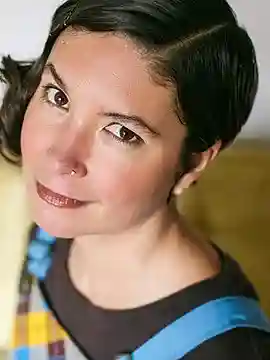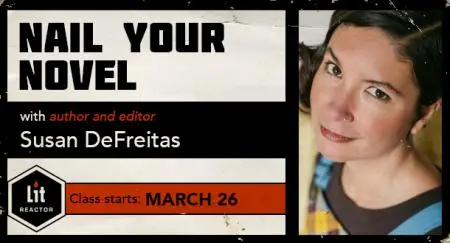Every year, most likely, there’s a big writers’ conference in your area, one where aspiring authors gather to pitch their novels to agents in the hopes of landing representation.
And every year, most likely, there are a whole lot of writers who get super psyched because one of those agents liked their pitch, liked their first 50 pages, and requested their full manuscript—only to get super bummed, either a matter of days or an archeological age later, when that agent decides to pass.
I saw this every year in Portland, Oregon, at the Willamette Writers Conference. Because I was one of the freelance editors these writers later turned to in order to figure out what happened.
Why, if the agent liked the premise, the writing, and the story in those first fifty pages, did they ultimately turn the project down when they read the full?
I want to preface this by saying that there are a bazillion reasons that this scenario might occur. It might be that the writing in the beginning of the novel is stronger than it is in its next two acts. It might be that the winds of publishing have shifted since the agent met the author at the conference. It might be that the agent just took on a manuscript with the exact same plot twist on page 150. Hell, it might be what the agent had for breakfast.
That said, there were three issues I saw again and again in the manuscripts of writers who wound up here. I’ve covered the first two of these issues in my first two posts for this series, which address character arc and goals and motivations.
The third and final issue, basically, is this: one thing did not lead to another, with clear consequences for the story moving forward, which meant there was no sense that the story was building up to something important.
Causality is not a term generally bandied about in creative writing circles, but it really ought to be, because it’s a principle that goes right to the root of storytelling.
Within the context of human evolution, the ability to look at A and predict B has really done a lot for us as a species. Big animal tracks? Watch out, a predator might be right around the corner. Pretty purple berries? Don’t eat them, as that color indicates poison.
The human brain is hardwired to make predictions, recognizing the relationship between cause and effect, often via the stories we’ve heard. Because a lot of our ancestors learned to evade predators and avoid poisons by listening to cautionary tales, rather than having to live them.
In modern times, we’re facing modern dangers, and modern advantages as well. But our brains are still subconsciously seeking information about the way the world works, and about how one thing leads to another, whether in our home and family life, career, or the wider world as a whole.
And for that reason, whether we realize it or not, when the chain of causation breaks down in a story—when each major development does not lead, in some clear way, to the next—our brains send us a signal: This story does not contain meaningful information.
Writers forget this when they’re down in the weeds with a novel. They believe that their characters are so compelling, their situations so affecting, that readers will hang around just to see what happens to them.
Or, the writers gets caught up in the setting, roaming around and exploring the game space, so to speak—and, in so doing, place the major developments of the plot (the ones clearly linked by cause and effect) too far apart. In the interim, the reader loses interest.
Cause and effect might be purely physical—for example, a tree falls on your protagonist’s house and, as a consequence, she’s not at work the day a coworker goes postal and shoots up her place of employment.
But unless you’re writing a thriller (and probably even if you are), that chain of cause and effect will be personal as well. For instance, because the protagonist wasn’t there the day everyone she worked with died, she developed survivor’s guilt.
So when her neighbor tries to leave an abusive husband and he comes after her with a gun, the protagonist will go to extreme lengths to save her, even to the point of endangering her own life, as a way of assuaging her guilt for not being there at work that day. The chain of cause and effect in this case establishes the protagonist’s motivation and causes her to act.
And when she pisses off her neighbor’s out-of-control, abusive husband? You can bet there will be consequences on that front as well.
Remember too that the other big thing your reader is looking for in the story—whether they know it or not—is the sense that something important hangs in the balance, whether it’s the protagonist’s life or someone else’s, their marriage, their family, or even the world at large. Which basically is what causes your brain to say, Pay attention! There might be some insight in this story that could be really important to you later on.
That’s why, not only do readers want to see one thing lead to another in a novel, they want to see something really important at the end of that chain of dominoes. There’s a Rube Goldberg where one thing leads to another and a balloon pops at the end—then there’s a Rube Golberg where the balloon pops at the end and defuses a bomb. The latter is what you want in your novel.
Want to strengthen the sense of causality in your novel, up the stakes, and, ultimately, improve its chances of publication? Join me for Nail Your Novel, my new online class here at LitReactor, staring March 26.
Questions about the class? Drop me a line: susan [at] susandefreitas [dot] com
Read Dirty Little Secrets Part One: Why No One Cares About Your Protagonist
Read Dirty Little Secrets, Part Two: Why Your Beta Readers Never Finished Your Novel

About the author
An author, editor, and educator, Susan DeFreitas’s creative work has appeared in the Writer’s Chronicle, Story Magazine, the Huffington Post, Daily Science Fiction, and Southwestern American Literature, along with many other journals and anthologies. She is the author of the novel Hot Season, which won a Gold IPPY Award for Best Fiction of the Mountain West, and holds an MFA from Pacific University. She divides her time between Santa Fe, New Mexico, and Portland, Oregon, and has served as a freelance editor and book coach since 2010.









